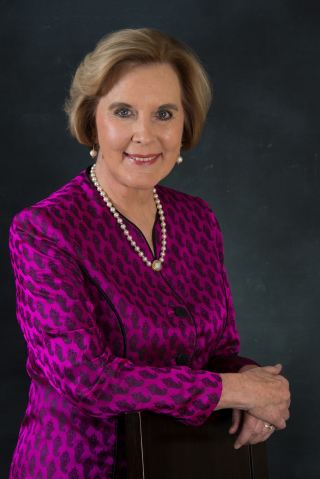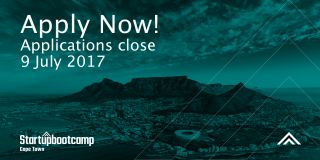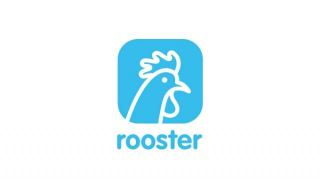Kuba Pioneering SMME Development with ‘Grow My Biz’
The key to recovering from our current unemployment crisis and stagnant economy will be Small, Medium & Micro Enterprises, now more than ever it is vital we put concerted focus and resources into SMME development and support.
The Kuba vision is two-fold; to facilitate access and trade between the informal market and formal businesses on the marketplace and supporting SMMEs by providing them with the necessary tools and resources to formalise their businesses to compete in the broader formalised economy. There are many ways to measure needs and growth, working in the informal market space we’ve learned that entrepreneurs and SMMEs have varied needs and their own ideas on what growth is that the market is often not offering. Our Kuba users have been clear that access to market and marketing their businesses effectively are their biggest challenges and so we developed the Grow My Biz packages.
The Grow My Biz packages are designed for SMMEs in various stages, the free Starter package only requires business owners to sign up on the Kuba marketplace, use the free invoicing software and contact us on anything they need via Kuba’s dedicated WhatsApp support. The Popular package is a good investment including company registration, a personally designed website, web hosting, business email addresses and a digital flyer for R550 per month. Not enough small businesses focus on online marketing as South Africa is still developing access to affordable internet and the skills required to effectively use it. For less than R1000 a month with the Premium package Kuba provides SMMEs with Search Engine Optimisation & Marketing with Google Ads, giving them business support and a Digital Marketing service while also promoting their business and services on Kuba’s social media platforms.
This is what Kuba’s Grow My Biz is about, giving SMMEs of all shapes and sizes options that suit their budgets and needs by extending the tools to reach their full potential and facilitating access to an organised marketplace full of customers in need of reliable local services. When we invest in local SMMEs we improve the quality of products & services, we expand entrepreneurial vision of what is possible and ultimately empower our communities to take control of their economic future.
For more information on Kuba
Mihlali Mbobo
Public Relations & Communications
This email address is being protected from spambots. You need JavaScript enabled to view it.
https://kuba.services
+27 (0)83 960 1127
9 Portswood Road,
Waterfront,
Cape Town
8001
Two SA Entrepreneurs Selected for Africa Prize for Engineering Innovation
The Cape Innovation and Technology Initiative and the Royal Academy of Engineering once again work together on the Africa Prize for Engineering Innovation 2018. Two South African companies are amongst the final 16 shortlisted candidates.
Monday 3 December 2018, Cape Town – Pelebox Smart Lockers and the Hybrid Five-Axis Machine Tool are the two South African innovations that are on the shortlist for the Royal Academy for Engineering’s Africa Prize for Engineering Innovation, accelerated by the Cape Innovation and Technology Initiative (CiTi).
CiTi is Africa’s oldest tech incubator, in its 20th year in 2019, and the Royal Academy of Engineering is the United Kingdom’s prestigious national academy for engineering and technology since 1976. Since 2017, the Royal Academy of Engineering has worked with CiTi to support engineering and tech entrepreneurs from across the continent in developing their unique scalable solutions to local challenges. After a highly successful first cohort together, the Royal Academy of Engineering once again selected CiTi as the primary programme incubation partner to support the 16 businesses from the following 6 African countries in 2018/19: Nigeria, Zambia, Kenya, Uganda, Burkina Faso and South Africa.
The programme, designed by CiTi specifically for the Royal Academy of Engineering, uses a remote incubation model, delivering entrepreneurial training, coaching and mentorship over the 7-month programme period; coupled with three residency weeks which include workshops, networking events and local entrepreneurial engagement sessions. The first residency week took place in Cape Town at the Bandwidth Barn in early November, and the following two will take place in London and Kampala. The entrepreneurs also stand a chance to receive £25,000 (R450,000) at the end of the programme, and all will have direct access to both the Academy and CiTi’s vast network of engineers, tech professionals, businesses and industry leaders.
“We have found a dynamic synergy with the Royal Academy of Engineering, especially around our shared impact values,” states Ian Merrington, CEO of the Cape Innovation and Technology Initiative (CiTi), “Making a difference and improving lives through technology by accelerating African innovation and African entrepreneurs is an objective shared by both organisations. CiTi has relished the opportunity to design a pan-African incubation programme. We now find ourselves strongly positioned as an African partner to international organisations who want to deliver high-impact support for entrepreneurship on the continent through hybrid models of training and mentorship.”
On why the Royal Academy of Engineering selected Cape Town-based CiTi as its incubation partner, Meredith Ettridge, Senior Manager for International Development at RAE, states: “Earlier this year we undertook a competitive tender process with a number of strong applications, following careful review we were very pleased to appoint CiTi as the training provider for the 2019 Africa Prize for Engineering Innovation, building on the success of the previous year. We were particularly pleased to award the contract to a training provider based in sub-Saharan Africa, and with such a strong history of support for entrepreneurs nationally and regionally.”
With Cape Town recently being named the leading Tech Hub of Africa, it should come as no surprise that two of the companies hail from SA.
“CiTi has a strong network of trainers and mentors in Cape Town so it was an easy decision to hold the first training session here. Cape Town also has a thriving technology ecosystem which was evident during the myriad of events happening as part of Global Entrepreneurship Week which allowed our shortlist to make excellent new connections,” adds Meredith Ettridge.
The Hybrid Five-Axis Machine Tool is the first of the South African innovations on the shortlist, developed by Dr Lukas du Plessis. Du Plessis’s hybrid machine tool works on five axes to allow users to shape, cut, grind, shear and otherwise form metals and hard materials with more precision.
“There’s so much manufacturing in South Africa that could be greatly improved if small and medium-sized businesses could afford machining tools like this – and my hope is to change that,” states Dr Lukas du Plessis, founder of the Hybrid Five-Axis Machine Tool.
He continues: “What I hope to gain from this experience is twofold: (i) A fundamental understanding of entrepreneurial business so that I can support entrepreneurs in South Africa to establish compact manufacturing firms that are competitive internationally. (ii) I also hope to find a partner who shares my manufacturing vision and passion for machine tools.”
The second South African innovation is the Pelebox Smart Locker system developed by Neo Hutiri.
Pelebox is a smart locker system designed for public healthcare facilities to dispense chronic medicine to regular patients, cutting down on long queues and easing pressure on clinic resources.
Developed by Hutiri and his team for the South African healthcare system, the Pelebox is a simple wall of lockers, controlled by a digital system in the centre. Healthcare workers stock the lockers with chronic prescription refills, log the medicine on the system, and secure each locker. Pelebox then sends patients a one-time PIN, which they simply enter into the system to unlock their medicine.
“The public healthcare system is so often under strain, and Pelebox can take a lot of pressure off clinics who fill repeat prescriptions for regular patients,” comments Neo Hutiri, founder of Pelebox Smart Lockers.
He adds: “To be considered amongst thousands of innovators and entrepreneurs that would have applied for this prize is a testament to the work that we are doing on the ground in leveraging technology to serve people. Our vision is to create and promote inclusive technologies solving challenging issues in health. We feel that we are well positioned to solve the issue of long queues in clinics through technology that is patient-centric and easy to use.”
Managing a Business is More Stressful than Raising Children
The World Health Organisation (WHO) identified workplace stress as the greatest health epidemic of the century. Stress can lead to depression and anxiety disorders, something a WHO-led study estimates costs the global economy US$ 1 trillion each year in lost productivity.
What’s more, entrepreneurs and more specifically, small business owners claimed last year, according to Bank of America, that “managing their business is more than four times more stressful than raising children.”
There’s no doubt that entrepreneurship is not for the faint-hearted and that they are more likely to be more stressed compared to the employee workforce, and that they are more likely to worry a lot more. But, stress can lead to depression and other mental health issues.
When people talk about the challenges of entrepreneurship, they seldom discuss the impact that running a business can have on mental wellbeing, and neglect can take its toll, warns Pieter Scholtz, Co-Master Franchisor in Southern Africa for ActionCOACH. A recent study approved by the UC Berkeley Institutional Review Board, revealed that entrepreneurs were more likely to experience depression, ADHD, addiction and bipolar.
“The reality is that many entrepreneurs have to invest more hours in their business than salaried workers. At the same time, they face a degree of uncertainty, fatigue and isolation that’s unknown to employed people. This is especially true at the early stages of a startup, when they cannot be sure if all the hours, and capital, they’re investing in their venture will bear fruit. The constant pressure if often compounded by financial stress, which can lead to burnout, i.e., the owner loses sight of what life is truly about,” he says.
Exacerbating the situation further is the fact that the entrepreneur seldom has a colleague with whom to discuss their anxieties. Moreover, social interchange of any sort – one of the most pleasant aspects of the workplace – is in short supply for the entrepreneur: that stereotype of the ambitious business brain working alone from her dining room table is often all too true.
This isolation can contribute to the depression that arises out of anxiety – plus, there’s the ever-looming spectre of burnout. After all, it’s rare that entrepreneurs have the resources to support a workforce – which means that they carry the brunt of marketing and finance activities, in addition to their core business duties.
“All of this creates a scenario where the entrepreneur’s sense of identity and purpose is strongly bound to the success of the company. While this is understandable, it can have a negative impact on the individual’s self-esteem if the business goes through a rough patch or even fails,” Scholtz points out.
He adds that this is where the tools provided by a business coach can prove extremely useful. “It’s not that the business coach fulfils the role of a therapist – although, inevitably, entrepreneurs experience relief from discussing their concerns with an objective party. Rather, it’s about creating balance for the business owner and equipping them with the skills they need to work through particularly challenging times. The start of a coaching programme is what we call the alignment, where we identify exactly what the business owner wants out of life and then we compare that to where the business is and prioritise the business from there.”
Scholtz refers specifically to the stress experienced by entrepreneurs: as seasoned business owners themselves, business coaches are able to identify with this emotion. They are able to share their own ideas and tips for dealing with stress but, more than this, they are also able to provide practical solutions. For example, the business coach may be able to suggest a resource that can offer the assistance needed to bypass an obstacle; or perhaps they can recommend an alternative approach to tackling the problem that the entrepreneur has not considered because they are too immersed in the situation.
Business coaches can also lessen the isolation experienced by entrepreneurs by tapping into their own extensive networks to find potential contacts who may be a good fit for the startup owner. They will also be able to suggest appropriate conferences and industry events where the entrepreneur can broaden their knowledge while meeting industry peers who may help further the business.
“Ultimately, our role is to ensure the health of an enterprise – and the mental strength and wellbeing of the business owner plays no small role in this. By working together with a business coach, the entrepreneur may build the mental resources needed to tackle the business world,” Scholtz concludes.
Engaged Entrepreneurs in Jozi
The Johannesburg leg and last workshop of the ninth annual ENGEN Pitch & Polish programme was held on Saturday, 13 October, and was attended by very engaged and enthusiastic group of entrepreneurs. Since inception, this national entrepreneurial workshop and competition – hosted in partnership with Engen Petroleum Ltd, Nedbank, Raizcorp and Caxton Local Media – has helped over 11 000 entrepreneurs improve the way they pitch their businesses to potential investors. Following the opening talk by Justin Cohen (best-selling author and international speaker) during which he discussed the truth about motivation and the value of delivering a polished pitch, Allon Raiz (founder of Raizcorp) proclaimed that it was inspirational to see so many entrepreneurs.
“My entrepreneurship journey started as a ‘one-man band’ and I, too, had to pitch constantly. The mission of ENGEN Pitch & Polish is to give you the best chance when the opportunity arises. It is your job to convince an investor to spend money on you, your product or service and that they will get a return. We need each and every one of you to grow this country, so learn and perfect your pitch and then go on and employ people and make the change.”
Through the pitch of Thami Biyela, who has a software-development business, the delegates saw the value of being clear and concise when describing the core business. Bringing in an emotive aspect is effective in capturing the attention of a potential investor; however, the numbers must also be sound. Sipho Mampe, who came in third place with his lab equipment manufacturing company, learned that being authentic was powerful and that it instantly made his pitch clearer.
He delivered a detailed breakdown of the funding required and, based on the feedback, now understands that he must understand the profitability of each product line. Coming in second place, Thuso Motau, who manufactures household detergents, learned that it will add credibility to her pitch to include where her products are currently being sold. She was articulate in presenting the problem and how her business solves it.
Going into greater depth about the revenue and profit would have been advantageous. Through the day, Mlungisi Nkomo, who is developing a virtual reality app, was able to pique interest with his tech idea, and learned not to over-complicate his business model at the start-up stage. Research should be intensive and relevant to the local market. A key learning was that he must know the input costs first before putting a price on his product.
The winning pitch came from Mmatsatsi Rampa, who has a paint-manufacturing business. Her pitch was confident and demonstrated how having a great presence illustrates your authority about the business and the industry. You must show potential investors that you have a profitable business when you require funding for expansion plans. Mike Stead from Engen Petroleum Ltd and a seasoned judge for the programme commented, “Today we saw a good variety of contestants in diverse industries.
A key learning is the value in having a solid business case and being able to express it.” Mervyn Pillay from Nedbank added, “This interactive workshop gives great hope for South Africa as job creation will continue to be through small businesses, and the learnings today help support them on their journey.” Insider tip: Be authentic.
People buy from people. Share your story and explain the WIIFM (what’s in it for me). As the 2018 winner of the Johannesburg leg of ENGEN Pitch & Polish, Mmatsatsi Rampa won R6 000 and a week of training at Raizcorp in Johannesburg worth R150 000. She also has the opportunity to progress to the semi-final and become the ultimate 2018 ENGEN Pitch & Polish winner and receive further cash injections and other prizes. Congratulations to everyone for attending, for taking action and for being the light that shines on the local entrepreneurial environment. For more information, visit www.pitchandpolish.com.
In this picture (from left to right): Mlungisi Nkomo, VR app developer from VosloorusThuso Motau, household-detergent manufacturer from Pretoria – second placeMmatsatsi Rampa, paint manufacturer from Johannesburg North – first placeSipho Mampe, lab-equipment manufacturer from Soweto – third placeThami Biyela, software developer from Soweto
Regus supports Business Growth in 3 New Locations in South Africa
Regus, the global specialist in serviced office space, are expanding their flexible offering to three more South African cities in December 2017, growing to 3000 plus locations worldwide with over 55 centres in South Africa. The opening of the new centres in Bloemfontein, Paarl and Pietermaritzburg, are part of a strategic focus to provide world-class workspaces and infrastructure, that will accelerate growth in small businesses and corporates in oft-forgotten, but booming areas.
Since its expansion into South Africa, Regus has provided over 55 locations with co-working and meeting spaces to accommodate the increasing demand for flexible, technologically advanced, professional work areas. The centres support corporates, start-ups, entrepreneurs, students, freelancers, business tourists and creatives with an all-inclusive package at an affordable rate.
The new centres will provide cutting-edge business solutions for cities with lucrative business interests and tourism, the size of which, place a strain on local infrastructure. The timing of the opening provides start-ups and businesses the opportunity to commence 2018 with a fully equipped, professional working environment.
Bloemfontein, Free State
Hailed as legislative capital of the country, three major national highways converge in Bloemfontein, with economic hub Gauteng being the closest destination for travel by car or plane. The city’s relaxed atmosphere, bustling economy, busy university culture and lack of major corporates, place a strain on the local infrastructure. The new centre provides meeting spaces, catering, fast internet, networking and knowledge-sharing opportunities of global standards. Served by two airports, this centre is also an ideal location for business travellers.
Paarl, Western Cape
This culture-rich, picturesque area in the Winelands, through no inclement of its own, has been identified as an area requiring support as a result of the local and international business travel born from the wine export industry. The new Regus centre will provide local businesses and international travellers with state of the art, professional, co-working spaces and impressive offices for corporates wishing to relocate from the busy mid-city or those implementing a flexible work policy.
Pietermaritzburg, Kwazulu Natal
The unsung capital of Kwazulu Natal, Pietermaritzburg is a hub to the aluminium, agricultural, manufacturing and tourism sectors. Its proximity to Durban, one of the busiest ports in Africa, results in promising local business growth while maintaining some of its sleepy charm. This made it an obvious choice for Regus, who identified the need for professional, world-class working spaces that will support business growth in the area.
According to Joanne Bushell, Country Manager Regus South Africa, “The three new Regus locations were strategically chosen to support areas in our country integral to the agricultural, manufacturing and services growth, but which often don’t have commensurate support of much-needed technological infrastructure and services. We have seen our business centres boost economic growth in all the locations where we put down our footprint.
”With more centres set to open in South Africa in 2018, this footprint is steadily growing to include centres nationwide, after establishing their current business centres in the main economic hubs such as Cape Town, Durban, Pretoria and Johannesburg.
For further information on Regus business centres, to find a global working environment near you:
CONTACT PERSON: Louise Rebstein
Regional Marketing Manager – REGUS
This email address is being protected from spambots. You need JavaScript enabled to view it.
+2711 534 8697 / +27 766776397
FOR MEDIA ENQUIRIES: Gidgette Osborne
This email address is being protected from spambots. You need JavaScript enabled to view it.
082 574 2308
Entrepreneurs have their day … even inside corporates
By Gusti Coetzer - director at Signium Africa (previously Talent Africa)
Entrepreneurship is widely celebrated. Since 2010, National Entrepreneur’s Day on November 19 has been presidentially proclaimed in the USA and has now been joined by National Entrepreneurship Month (November), National Entrepreneurship Week and Small Business Saturday.
Celebration is understandable. Global experience indicates entrepreneurs create jobs and often develop products with worldwide appeal that boost export earnings.Entrepreneurial spirit is also high on the list of competencies when job specifications are drawn up by major companies looking for executive talent.
Though entrepreneurs are rightly applauded, there appears to be some confusion about what it takes to be one.Media coverage of entrepreneurship and the qualities required of the next Steve Jobs or Jeff Bezos confirms the confusion as many commentators are just as keen to outline misconceptions around entrepreneurship while others fail to distinguish between subsistence-level small business and game-changing innovation.
Those with real entrepreneurial fire go out to revolutionise their industries. Some even want to change the world.Opening yet another nail bar will hardly revolutionise the industry, though earning your own living without reliance on a boss is certainly a commendable goal.
Pretoria-born multiple entrepreneur and billionaire Elon Musk famously said, “Goingfrom PayPal, I thought, ‘What are some of the other problems that are likely to affect the future of humanity?’ Not from the perspective, ‘what’s the best way to make money?’”
He went on to launch SpaceX, the commercial space travel firm, and Tesla Motors, the electric car-maker.For the type of entrepreneurship that creates boundless new opportunities, it therefore appears a vision beyond financial security is required. In fact, financial insecurity and frugality may be the lot of the visionary entrepreneur in the early days.
There is general consensus that risk-taking ability is a must as so many entrepreneurs champion breakthrough concepts that may not look like a solid investment at inception stage. Generating ideas is therefore a plus, but even more important is the drive to implement them, often at pace.
Creative people have ideas. Entrepreneurs not only have them, they implement them, acting quickly to effect change.
Even a writer and poet like Goethe recognised the importance of get-up-and-go. He noted, “What is not started will never get finished.” In other words, dreaming won’t make it so.It takes a committed entrepreneur to get the job done and turn vision into a paying proposition.In addition, a positive mindset and persistence are obligatory, judging by media commentary.
Billionaire British entrepreneur Richard Branson remarked that business opportunities are like buses – there’s always another one coming. Decades earlier, inventor-entrepreneur Thomas Edison consoled himself during a rough patch that he had not failed, he had simply found 10 thousand ways that did not work.
Conservative investors would have given up long before his bright ideas led to the development of the electric light bulb and record-player.Of course, the start-up visionary does not monopolise entrepreneurship. Increasingly, we see major corporates committing themselves to a culture that embraces judicious risk-taking and champions ongoing innovation.
Only a self-motivated initiator (or several) can instil such a culture.It seems the day of the corporate entrepreneur is at hand … and not only on November 19.
Global Innovation Accelerator last call to local startup talent – 10 days left to apply!
Startupbootcamp Cape Town (SBC) is issuing a final call to startups in Africa to apply to participate in the first ever Africa-based programme.
Internationally renowned accelerator, Startupbootcamp launched their first Africa-based programme in May 2017. Now, after conducting over 12 successful FastTrack events across the globe in search of startup talent, Startupbootcamp Cape Town is issuing a final call for applications. The deadline for online applications is 9 July 2017.
From a pool of hundreds of applicants, the 10 most promising teams will be selected and provided with EUR 15,000, 100+ highly engaged industry mentors, free office space, access to funding and a network of industry partners, investors and venture capital firms. The 3-month bootcamp kicks off in September 2017 in Cape Town, South Africa, and will be led by seasoned innovation experts, Zachariah George, Philip Kiracofe, and Paul Nel.
Core sponsors for this first SBC Africa-based programme include big backers BNP Paribas Personal Finance, RCS, and PwC. Support is also given by global sponsors Google cloud, Amazon web services, Intel, and Cisco.
“As a leader in innovation itself, RCS is committed not only to the continuous search for new ideas and solutions that will define the future of financial services institutions, but also to collaborating and building partnerships with fledgling entrepreneurs to develop untapped talent. RCS believes in the potential of the African continent as the source of a new wave of technological innovation,” believes Regan Adams, CEO of RCS.
Startupbootcamp CapeTown was initiated after a trend analysis found more than 160 applications to the global programme originated from African teams in 2016 alone.
Ahead of final applications – attend a local FastTrack event
With only 4 African FastTrack events left to go, startups can apply to attend a local FastTrack ahead of the final application deadline to present their ideas to mentors and sponsors for pre-application advice and feedback.The last leg of FastTracks will be taking place in Dubai (2 July), Durban and Cairo (4 July), Cape Town (7 July) as part of their global tour to find the next big startup phenomenon.
“The aim is to find and grow disruptive startups and connect them with dynamic corporates. We are fundamentally changing the ecosystem and seeing tangible results that validate our methodology. The more we engage the more excited we get at how much talent we unearth at these FastTracks,” shares Philip Kiracofe, co-MD of SBC CapeTown.
Zachariah George, co-MD of SBC CapeTown, share, “It’s been an exhilarating, moving tour around the world engaging with startups. Their insight, dedication, and energy is inspiring! Africa is home to some of the best talent – and startups need to flex themselves and enrol programmes like SBC to realise true scale and success.”
Applications are open to a broad array of disruptive startups in blockchain, connected devices, payment solutions, capital markets and asset management, integrated supply chain, e-commerce, alternative financing, identity management, digital connectivity, data and behavioral analytics and enabling technologies and beyond.
NOTE: FastTrack engagements are not a requirement to apply for the Startupbootcamp Accelerator, and we encourage ALL startups to apply.
How to apply?
Interested teams can apply to attend a FastTrack here: http://bit.ly/capetownft
Any mentors that would like to help with the FastTrack can apply here: http://bit.ly/capetownmentor
Startups interested in applying to the 3-month Cape Town program can apply here: https://www.startupbootcamp.org/accelerator/cape-town
Notes For Editors
For more information about this press release, contact: Mika StanvlietThe Loudhailer: PR for Startupbootcamp Cape Town, South This email address is being protected from spambots. You need JavaScript enabled to view it. +27 81 534 6237www.startupbootcamp.org
About Startupbootcamp
Founded in 2010, Startupbootcamp is a global startup accelerator with 18 programs in Amsterdam, Barcelona, Berlin, Chengdu, Istanbul, London, Mexico City, Miami, Mumbai, New York, Rome, Singapore. They take startups global by giving them direct access to the international network of the most relevant partners, investors and mentors in their sector in more than 30 countries. 79% of the Startupbootcamp alumni teams are still active and 71% have gone on to raise additional funding from many of the world's leading VCs and angels.For more information visit: www.startupbootcamp.org
About RCS
The RCS Group (RCS) is a leading consumer finance business that offers its customers a range of financial service products under their own brand name, as well as in association with a number of leading retailers in South Africa, Namibia and Botswana. RCS collaborates with its retail partners as BNP Paribas Personal Finance South Africa. RCS not only finances, operates, manages and promotes successful credit programmes, but also offers state of the art IT, call centre, risk management as well as financial marketing and brand building solutions.RCS continues to demonstrate growth and innovation in the credit market, offering ground breaking and accessible credit solutions to customers. The company provides more than just a technical solution and product for its partners, it also customises products that integrate people, processes and technology, creating value for their partners and customers.
About BNP Paribas Personal Finance
BNP Paribas Personal Finance is the leader in France and in Europe for personal loans via its activities in consumer credit and mortgage lending. A 100% subsidiary of the BNP Paribas Group, BNP Paribas Personal Finance has nearly 20,000 employees and operates in about 30 countries. Under brands including Cetelem, Findomestic in Italy, AlphaCredit in Belgium, the company offers a full range of personal credit products at points of sale and car dealerships and directly to consumers through its customer relations centres and Internet. BNP Paribas Personal Finance has added an insurance and savings offer for its clients in Bulgaria, France, Germany, and Italy.BNP Paribas Personal Finance has developed an active partnership strategy with retailers, manufacturers and automotive retailers, web merchants and financial institutions (banks and insurance companies), based on its experience with marketing credit offers and integrated services tailored to partners’ business and commercial objectives. It is also a leading player in the field of responsible lending and financial education.www.bnpparibas-pf.com
About PwC
At PwC, our purpose is to build trust in society and solve important problems. We’re a network of firms in 157 countries with more than 223,000 people who are committed to delivering quality in assurance, advisory and tax services. Find out more and tell us what matters to you by visiting us at www.pwc.com.PwC has a presence in 34 Africa countries with an office footprint covering 66 offices. With a single Africa leadership team and more than 400 partners and 9000 professionals across Africa, we serve some of the continent’s largest businesses across all industries.PwC refers to the PwC network and/or one or more of its member firms, each of which is a separate legal entity. Please see www.pwc.com/structure for further details.
South Africa’s number one startup gets set for Seedstars Switzerland
From Wildcard to South African winner – IDWork, a platform for people to find the perfect fit for their service provider needs, is set to take on the best startups from 65 other countries, in the global finale of the Seedstars World competition in Switzerland on 06 April 2017. The event is one of the world’s most prestigious, with prizes that include USD 500k in investment, Software-as-a-Service solutions valued at USD 90k, plus insight and training for every startup, giving them a boost towards long-term stability and success. “Since winning the South African leg of the tour, we have been busy preparing for the finale in Switzerland to ensure that IDWork is ready to take on the rest of the world,” says IDWork co-founder Arjun Khoosal.
“We recently returned from the continental summit in Rwanda where we met the other African contenders and began preparations for the finale in April. The African tech scene is flourishing - these startups are going to be fierce contenders.”The Seedstars Summit 2017 will take place in Lausanne, Switzerland on 06 April and the 65 startups who qualified will battle for supremacy through competitions and presentations. It will be a gruelling seven-day process as the startups are whittled down from 65 to one, and IDWork is ready to represent South Africa and bring it home.“We were impressed with IDwork because of their early traction, strong founding team and the massive relevance of the problem they're solving - not just in their local market but across the region!" says Claudia Makadristo, Regional Manager for Africa, Seedstars Global. IDWork’s entrepreneurial co-founders Arjun Khoosal and Sayo Folawiyo may be facing a challenging start to April, but the benefits of the competition go beyond winning first place. All the startups will receive mentorship and the chance to network with some of the world’s most dynamic entrepreneurs, investors and corporate leaders.
“We know that this is an opportunity for us to build our brand in the global arena and to meet with people who can help us take our company to the next level,” adds Khoosal. “We plan to make every moment count at the Summit, learning from the workshops and networking with the brightest minds in the business.” IDWork is a remarkable blend of entrepreneurial spirit, technological innovation, and social impact. The company connects services providers (like plumbers, carpenters, and electricians) to people who need work done by someone they can trust. Reviews give customers profound insight into the capabilities of the people they are hiring. From choosing a contractor, to receiving a quotation, to paying online - the entire process is seamless and simple. It opens up a world of employment opportunities to experts who are great at what they do, but might not have the access to technology or the marketing skills necessary to grow their businesses.
ABOUT IDWORK
IDWork is a technology-enabled startup that connects consumers with trusted and reliable handymen and contractors who will help them renovate, repair and rescue their homes. IDWork's technology gives service providers an opportunity to grow their business and reputation. It also takes the stress out of home renovations and repairs, by showcasing stringently vetted service providers that homeowners can trust, and making it easier than ever to use them.Visit http://www.idwork.co.za to find out more about our offerings, you can also follow us on Facebook, LinkedIn and Twitter.
ABOUT SEEDSTARS
Seedstars is a global organisation with a mission to impact people's lives in emerging markets through technology and entrepreneurship. We sit at the forefront of innovation in developing markets and we make it our mission to share these developments with you across the digital landscape. We invest in people, we connect teams, we encourage risk. We empower entrepreneurial spirits to swim against the tide. Join us online or in person at our events anywhere around the globe. Join us as we seek to impact billions of lives in emerging markets.
Biz2Sell launches unique solution for Business Sellers
So you have decided to sell your Business for 1 or more reasons - it could be because you have decided to relocate or emigrate; you may want to cash in after many years of hard work and retire; or you may have decided to move into a new venture.
Once you have made your decision to sell, you need to decide on the method you will employ to ensure a successful sale. You only have 2 options to decide on - 1) Employ the services of a Business Broker or 2) Sell your Business yourself.
Having sold my own Businesses privately in the past, and having owned my own Business Brokerage and sold Businesses on behalf of clients, I am qualified to give an overview of the pros and cons of both methods.
Selling through a Business Broker: - A qualified Broker can assist you with establishing the correct price for your Business in order to ensure a successful sale. - Allows you the time to concentrate on running your business and preventing the possible decline of turnover and profits. - A qualified Broker knows the most effective process to use from marketing your business, screening and qualifying leads, and negotiating the sale with an interested buyer. - The Broker has the necessary documents to qualify potential buyers, and conclude a sale. - Brokers usually charge a commission of 10% on the sales price of the Business. This could amount to a huge amount of money coming out of your pocket! You need to decide whether you are prepared to give away 10% of the selling price of your business! - If a Broker in a Brokerage needs to meet his target, or is short of personal funds, he or she may push you to accept a lower offer for your Business to satisfy his/her needs.
Selling your Business privately: - You know your Business better than anyone. You are the best person to answer questions on your business. You also know the industry and can suggest ways of improving turnover and profits. You may also be able to point out future opportunities in the industry. - You can save on the 10% commission charged by Brokers. The extra 10% could amount to a substantial amount of money, and will come in very handy with your future plans! Conclusion: - The reason why most sellers do not sell privately is because they actually don't know how! - They don't know how best to market their Business for sale, how to qualify the potential buyers, what steps to follow, and what documents are needed. They also know that they will need to spend an unknown amount of money to have the agreement drawn up by an Attorney.
What if there was another option? - You get a step by step guide to selling your Business; - Your Business is advertised on a premium targeted site; - You receive all leads yourself; - You get all documentation to conclude the sale; - You get access to telephonic support and advice from a qualified Business Broker; - You pay 0% commission! Biz2Sell have a choice of advertising packages for sellers of Businesses. Biz2sell have also developed a unique option for business owners who want to sell their Business privately and not pay a huge commission. ( Platinum Package.) Biz2 Sell does not charge any commission on Businesses sold through our Premium advertising platform.
To learn more about us and to see our affordable packages please visit http://www.biz2sell.co.za
SovTech Develops Rooster; a Social Alarm Clock App that Revolutionises the Wake-up Experience
SovTech’s development team has recently developed a mobile app that promises to provide users with an entirely new wake-up experience. Rooster is a social alarm clock that is transforming mornings and making people excited to wake up through providing them with a fully customisable wake-up experience. Users can send and receive audio clips and use them as a customised alarm or have the option of waking up to Rooster channels which are updated daily with fresh content.
The brainchild of Dominic Koenig, Rooster was born out of Dom’s intense hate for his monotonous alarm every morning. “Most people can relate to that diabolical beeping alarm sound that interrupts the blissful feeling of sleep. I was simply gatvol of waking up to the same annoyance every day, and decided to record voice notes of my sister talking in hilariously stupid accents and listen to those when I woke up. Eventually I got tired of listening to the same few voice notes though and wondered how cool it would be if she could send me fresh audios…as a surprise. And so the Rooster egg was laid.”
Along with Josh Perry, his business partner and friend, and with the support of the Allan Grey Orbis Foundation, the pair approached SovTech to develop their idea into a user-friendly mobile application.
SovTech saw huge potential for the Rooster concept and the team’s passion behind the project was entirely contagious. With SovTech’s elite development team, they took the simple concept of a mobile alarm and integrated it with the ability to record and share personalized audio clips to be used as an alarm tone. Head of development at SovTech, Andrew Chouler, notes, “The team has had to overcome some complex technical difficulty during the development process but it is not everyday that you come across an application with such a strong viral nature and so building for the user whilst maintaining simplicity has been critical and we are very happy with the outcome of the MVP and look forward to the exciting features we will be integrating” Powered by the dream to re-invent people’s mornings and personalise the experience of waking up, the Rooster team have successfully turned Dom’s idea into an exciting new application which is available in both Android and iOS app stores.
The app has already seen success with a whopping 900 downloads in its first week and downloads in a number of countries across the world. It is simple to use with a fresh user interface and the functionality to add friends and record, send and save favourited audios for the curation of an ultra-personalised wake-up. Themed channels which the team updates daily include everything from news to music, mediation and comedy, with immense possibilities for expansion through on-boarding new channel content providers. Will this social alarm clock ensure that no one wakes up on the wrong side of the bed? Absolutely! Dom’s vision is that Rooster will replace dull smartphone alarms and believes that creating a customisable wake-up experience has huge scope for virality. “We are not sure how long it'll take for the app to become global, but I think we'll be satisfied once Morgan Freeman wakes us up.”
About SovTech
SovTech is a leading software development platform for businesses in Africa. Believing that rapid innovation in software, cloud and mobile technology will fundamentally revolutionise business for small, medium and large enterprises. SovTech’s platform offerings give businesses instant access to world class software development, leading cloud-based software-as-a-service products and a library of enterprise technology services.
Contact This email address is being protected from spambots. You need JavaScript enabled to view it. for all your software needs








